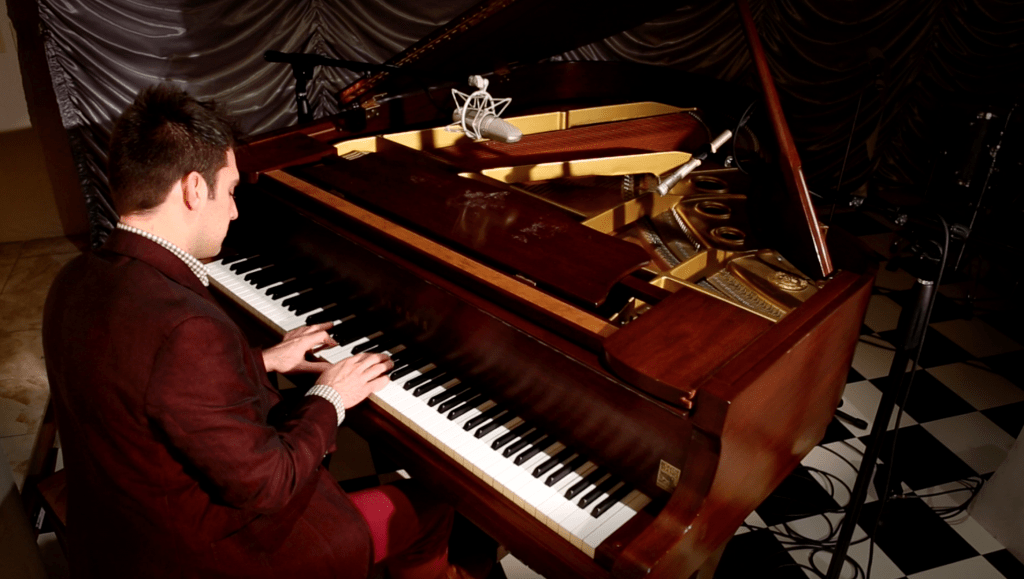I still remember the first time I heard David Bowie’s 1969 classic, “Space Oddity.” I was in college, hoping to pursue a career in music, and struggling to make sense on what exactly that meant. At a time where, prompted by technology, music was being endlessly categorized into tiny boxes of subgenres, I felt like I was late to the party. I didn’t fit in as a jazz musician, and didn’t fit in as a pop musician, either.
I’m not sure how “Space Oddity” ended up on my Hewlett-Packard dorm room computer. I probably downloaded it from Napster, truth be told (it was the early 2000s, in case that wasn’t obvious). All I remember is listening to it for the first time and thinking, “Why am I just now discovering David Bowie?”
“Space Oddity” wasn’t like the rock songs I had heard before. It was cinematic. It had lots of chord changes and an unusual form. It seemed to have more in common with the tradition of opera than rock. I immediately sought out more Bowie albums – Ziggy Stardust, Aladdin Sane, Heroes – and found that, as different as each one sounded, they each had the unmistakable stamp of an artist that simply made the music that he wanted to make. David Bowie didn’t follow trends; he made them. By the time the rest of the world caught on to what his was doing, he was already out the door. He was eternally the kid that refused to color within the lines, yet somehow managed to turn the page into a beautiful work of art.
I sat down at the piano today to reflect on Bowie’s extraordinary life in music and the lessons he gave to artists everywhere – lessons that continue to inspire all of us that dare to color outside of the lines from time to time. Here’s “Space Oddity,” as I remember hearing it so many years ago. It’s my way of saying, “thanks.”
RIP David Bowie, 1947-2016.
-Scott
@scottbradlee

